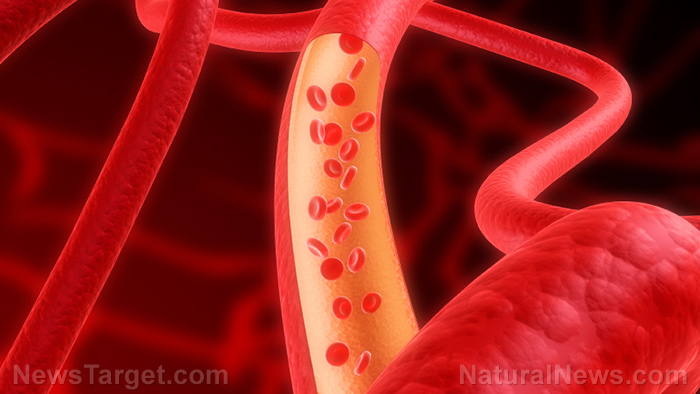Study: Pressure on blood vessels that decreases cerebral blood flow may be linked to Alzheimer’s
03/20/2020 / By Darnel Fernandez

The brain works similar to a computer in that both can hold and process plenty of information. But the brain also shares a computer’s need for a reliable source of power to function properly. This power is provided in the form of glucose and oxygen found in the blood. However, some neurological diseases disrupt this energy supply by altering blood flow in the brain. In fact, recent research suggests that poor blood flow could often be an early warning sign for neurodegenerative diseases like Alzheimer’s disease.
A study published in the journal Science found that pericytes — cells responsible for regulating cerebral blood flow and which severely restrict blood flow in the brain after a stroke — constrict the brain’s capillaries, thus limiting the amount of oxygen and glucose the brain gets. Additionally, the presence of amyloid-B, which are proteins responsible for the tell-tale plaques in the brains of Alzheimer’s patients, also contribute to capillary constriction.
“Our study has, for the first time, identified the underlying mechanism behind the reduction of brain blood flow in Alzheimer’s disease,” said lead author Ross Nortley. “Since reduced blood flow is the first clinically detectable sign of Alzheimer’s, our research generates new leads for possible treatments in the early phase of the disease.”
The role of pericytes in Alzheimer’s disease
According to the Centers for Disease Control and Prevention (CDC), Alzheimer’s disease is one of the most common types of dementia — a set of symptoms that cause a decline in memory, reasoning or other thinking skills. They report that as many as five million Americans are currently living with the disease, and they predict that this number will increase to 14 million people in the coming decades. Alzheimer’s is a progressive neurodegenerative disease triggered by complex brain changes that occur due to damage to the brain’s cells. (Related: Understanding the medical differences between Alzheimer’s and dementia.)

Previous studies have looked into the relationship between blood vessel health and Alzheimer’s disease. For instance, researchers from the University of Copenhagen and Yale School of Medicine analyzed how hypertension affects the movements of brain fluids and found that high blood pressure interferes with the brain’s waste management system, contributing to serious conditions like Alzheimer’s.
In the current study, European researchers examined the role of pericytes in Alzheimer’s disease by examining cerebral capillaries in humans and mice developing Alzheimer’s disease. They also looked at the effects of applying amyloid-B to these capillaries.
The researchers used freshly sliced brain tissue collected from cognitively-impaired humans during neurosurgery. They then analyzed how the pericytes reacted to long-term amyloid-B exposure. In both humans and mouse models developing Alzheimer’s, the researchers observed that the capillaries were constricted specifically at locations with pericytes. They also found that the constriction rapidly increased with the severity of amyloid-B deposition.
Furthermore, exposure to amyloid-B reduced the diameter of human capillaries by about 25 percent after only 40 minutes. This constriction peaked at 30 percent at locations with pericytes, which the researchers estimated would cut the brain’s blood flow by half. Meanwhile, in mouse models, 16 of the 20 models experienced more than five percent capillary restriction when exposed to amyloid-B proteins.
“Our research raises the question of what fraction of the damage is a consequence of the decrease in energy supply that amyloid produces by constricting the brain’s finer blood vessels,” said senior author David Attwell.
“In clinical trials, drugs that clear amyloid beta from the brain have not succeeded in slowing mental decline at a relatively late phase of the disease. We now have a new avenue for therapies intervening at an earlier stage.”
Learn more about Alzheimer’s disease and how to manage its symptoms at Brain.news.
Sources include:
Submit a correction >>
Tagged Under:
Alzheimer's disease, amyloid B proteins, blood vessel health, blood vessels, brain blood flow, brain function, brain health, capillary constriction, mental decline, neurodegenerative disease, neurological disorders, pericytes, research
This article may contain statements that reflect the opinion of the author





















